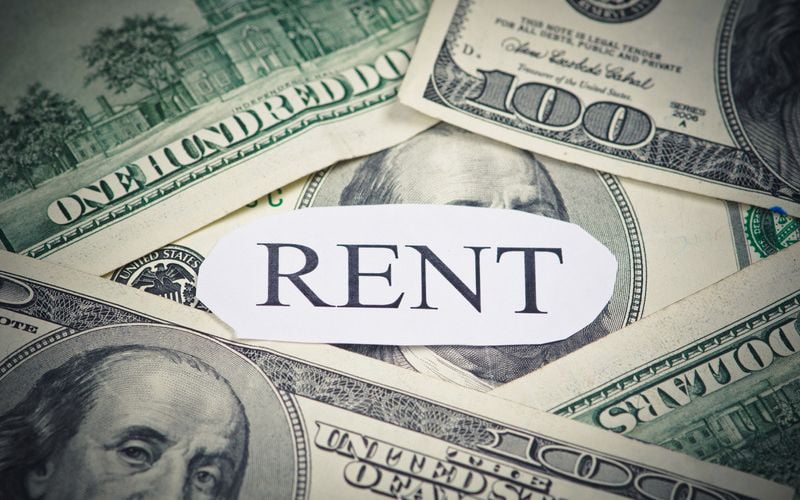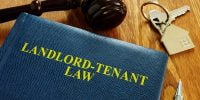Last Updated on March 18, 2024 by Kelvin Nielsen
As a tenant in Florida, you have certain rights when it comes to repairs in your rental unit. One of the most common questions that arises is whether you can withhold rent if your landlord fails to make necessary repairs.
The answer to this question can be complex, as it depends on several factors.

Under Florida law, landlords are required to maintain their rental properties in a habitable condition. This means that they must ensure that the property is safe, clean, and in good repair.
If your landlord fails to make necessary repairs, you may have the right to withhold rent until the repairs are made. However, there are certain steps you must take to ensure that you are within your rights as a tenant.
Legal Grounds for Withholding Rent
As a tenant, you have certain rights and responsibilities when it comes to renting a property in Florida. One of these rights is the ability to withhold rent under certain circumstances.
Understanding Florida Statutes
Florida Statutes provide tenants with the legal right to withhold rent if the landlord fails to maintain the property in a habitable condition. This means that the property must meet certain health and safety standards.
Such as, having hot water, functioning plumbing, heating, and appliances, among others.
Tenant’s Notice Requirements
Before withholding rent, tenants must provide their landlord with written notice of the repair or maintenance issue. The notice must specify the problem and give the landlord seven days to fix it.
If the landlord fails to fix the issue within seven days, the tenant may then withhold rent.
Conditions for Rent Withholding
Tenants may only withhold rent if the repair or maintenance issue affects the habitability of the property. Withholding rent for other reasons, such as a dispute over security deposit return, is not legal in Florida.
Additionally, tenants must be current on their rent payments before withholding rent.
Related Posts:
- Landlord Rights in Florida
- How Long Does a Landlord Have to Fix Something in Florida?
- Florida Landlord Carpet Replacement Law
Consequences and Protections
Potential Risks of Withholding Rent
If you withhold rent for repairs in Florida, you risk being evicted by your landlord. Your landlord can also sue you for unpaid rent and damages. Moreover, withholding rent may negatively impact your credit score and rental history, making it more difficult for you to rent in the future.
Tenant’s Legal Protections
Under Florida Landlord-Tenant Law, tenants have the legal right to withhold rent if the landlord fails to provide essential repairs. However, tenants must follow specific procedures, such as notifying the landlord in writing and giving them a reasonable amount of time to make the repairs. Tenants may also be required to deposit the withheld rent into an escrow account.
Alternative Remedies
If you cannot withhold rent or if your landlord retaliates against you, you may pursue other legal remedies.
For instance, you may file a complaint with the Florida Department of Agriculture and Consumer Services or seek a court order to force your landlord to make the repairs. You may also consider forming a tenant organization to advocate for your rights.
Related Posts:
- Florida Landlord Responsibilities
- Renters’ Rights in Florida for Repairs
- Florida Rental Laws Month to Month
Frequently Asked Questions

What are the legal grounds for a tenant to withhold rent in Florida?
A tenant may withhold rent in Florida if the landlord fails to maintain the property in a habitable condition. The landlord is required to provide a safe and sanitary living environment, and failure to do so may constitute a breach of the lease agreement.
How must a tenant properly notify a landlord of necessary repairs in Florida?
A tenant must provide written notice to the landlord of necessary repairs. The notice must specify the repairs needed and give the landlord a reasonable amount of time to make the repairs. If the landlord fails to make the repairs, the tenant may be entitled to withhold rent.
What is the maximum duration a landlord in Florida has to address and resolve repair issues?
Under Florida law, a landlord has 7 days to address and resolve repair issues that threaten the health or safety of the tenant. For non-emergency repairs, the landlord has 20 days to make the necessary repairs.
Under what conditions is a rental property deemed uninhabitable according to Florida law?
A rental property is deemed uninhabitable if it lacks essential services, such as electricity, water, or heat, or if it poses a health or safety hazard to the tenant. A property may also be deemed uninhabitable if it violates building codes or other safety regulations.
What steps should a tenant take to place rent into escrow when faced with repair issues in Florida?
To place rent into escrow, a tenant must provide written notice to the landlord of the necessary repairs and give the landlord a reasonable amount of time to make the repairs. If the landlord fails to make the repairs, the tenant may file a complaint with the court and deposit the rent into an escrow account until the repairs are made.
Are tenants in Florida entitled to relocation allowances during major repairs?
No, tenants in Florida are not entitled to relocation allowances during major repairs. However, if the repairs will take an extended period of time, the tenant may be entitled to terminate the lease agreement and seek alternative housing.
Disclosure: The content herein isn’t a substitute for advice from a professional attorney. It’s only meant to serve educational purposes. If you have a specific question, kindly seek expert attorney services.
Sources: FL Statutes Chapter 83 Part II, Warranty of Habitability in Florida, Florida Department of Agriculture and Consumer Services

Amanda Rose is a seasoned landlord with 13+ years of expertise in overseeing diverse properties. Her adept management spans single and family homes, along with multi-family apartments and condos, across Wyoming and South Dakota. Her commitment and proficiency have cemented her status as a thriving property management professional.
She is a member of the following organizations: Wyoming Landlord’s Association, National Association of Residential Property Managers (NARPM), Wyoming Apartment Association, South Dakota Multi-Housing Association (SDMHA), and South Dakota Landlord Association (SDLA).







